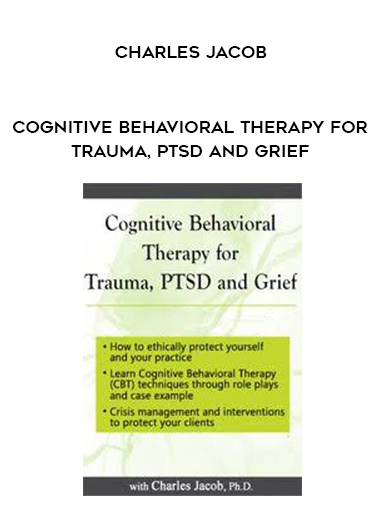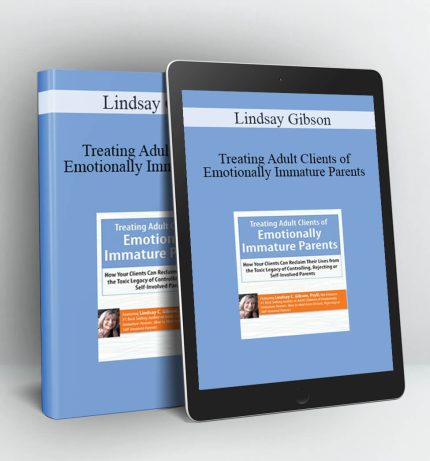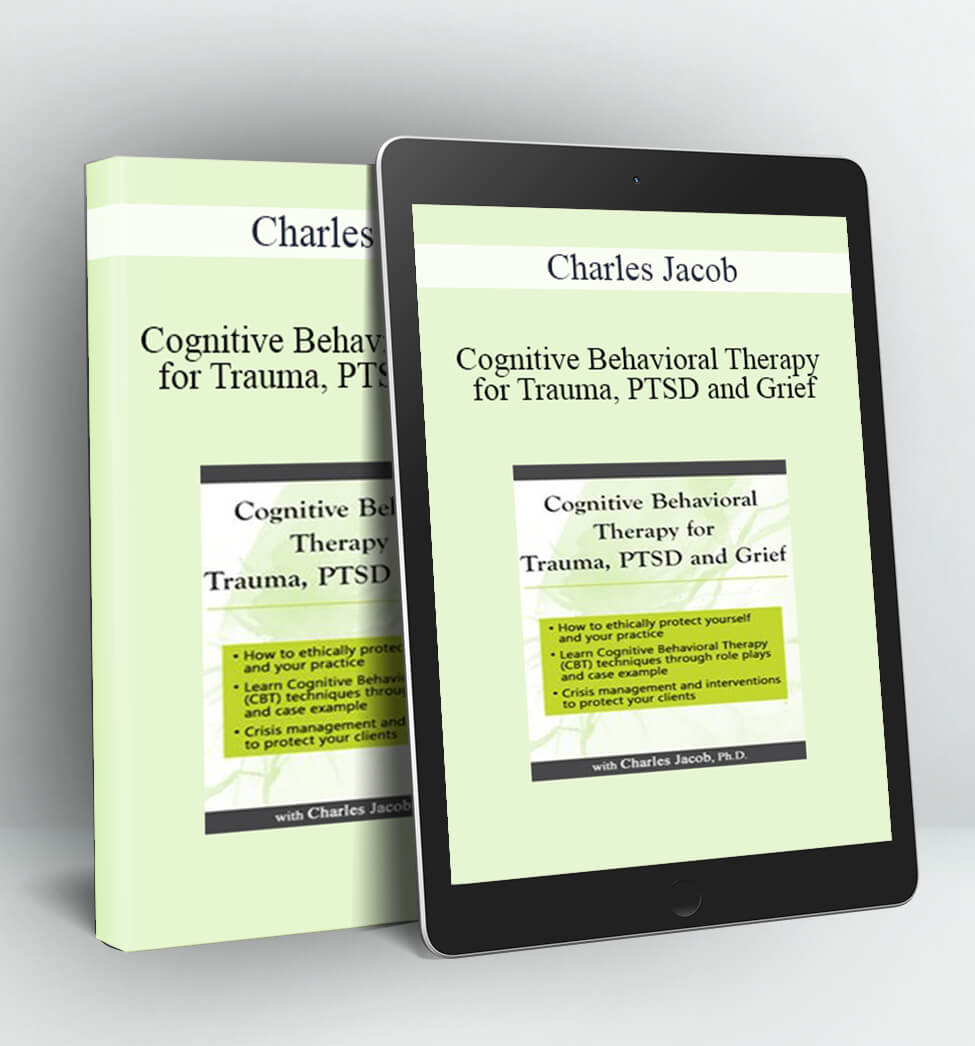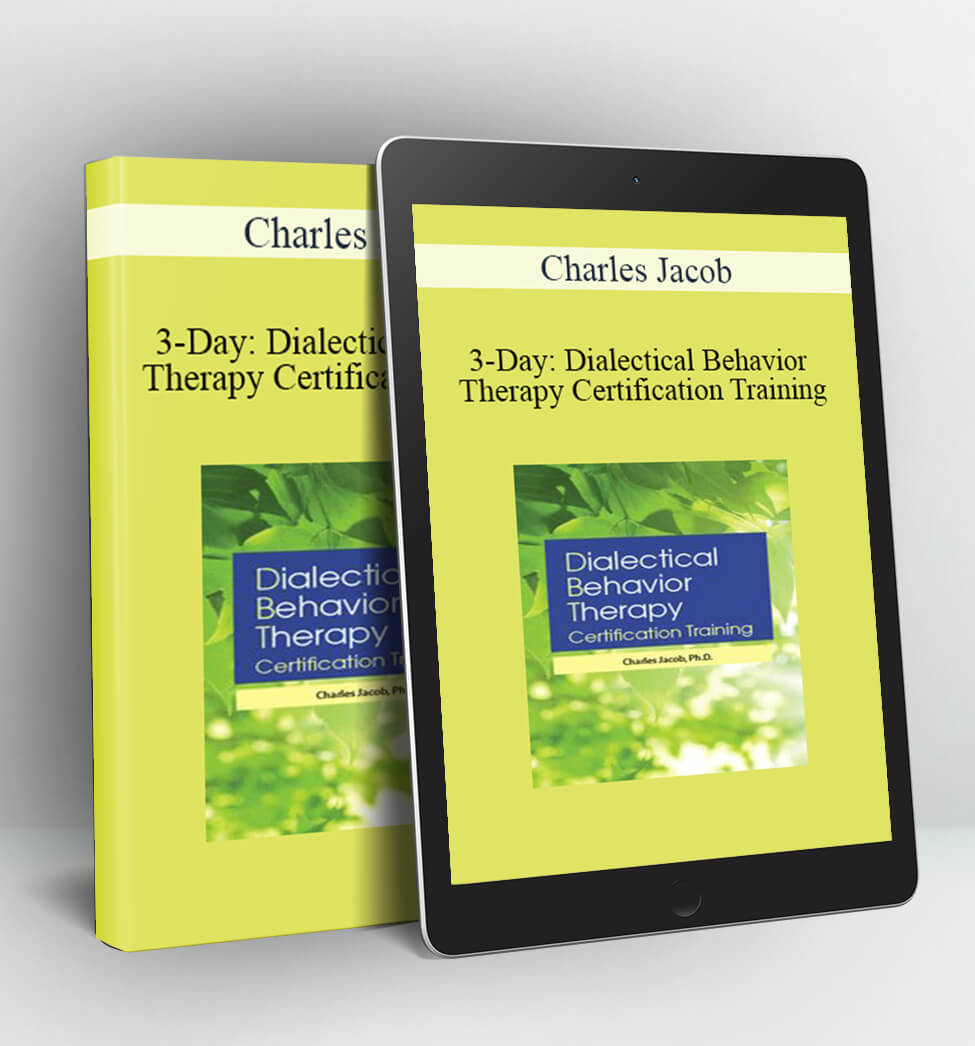COGNITIVE BEHAVIORAL THERAPY FOR TRAUMA, PTSD AND GRIEF – CHARLES JACOB
- How to ethically protect yourself and your practice
- Learn Cognitive Behavioral Therapy (CBT) techniques through role plays and case example
- Crisis management and interventions to protect your clients
Trauma, grief and loss are regular aspects of your practice; and yet, you may not really be aware of what works and what doesn’t work in helping clients move forward with their lives. You might even be causing your clients (and yourself) more harm…
This seminar pulls from cutting edge research to help you identify effective Cognitive Behavioral Therapy (CBT)-focused interventions to help clients cope in the aftermath of trauma, PTSD, grief and loss. It has been shown that CBT techniques are a powerful tool for trauma and PTSD. You will have an opportunity to put these new skills to practice during role-playing exercises and case examples throughout the day.
When working with clients suffering from trauma, grief and loss, you need to be aware of the risk factors for you, your practice and your clients. This seminar will address ways to effectively deal with crisis management and summarize how to be sure your clients are safe and using best practices to avoid litigation.
Vicarious trauma of the therapist (you!) is another serious problem that comes along with these clients. Caring for the self is equally important for you to be the best therapist you can be. This seminar will teach you mindfulness skills to use as a protective tool, as well as CBT techniques to help heal vicarious trauma that may affect your practice and your personal life.
- Explain how to use CBT for the treatment of PTSD and grief.
- Describe exposure-based treatment for trauma, clinical assessment and treatment issues to avoid.
- Explain how to use mindfulness and CBT in the prevention and management of vicarious trauma.
- Identify CBT techniques to use with crisis management and intervention.
- Identify the essentials of treatments that may cause harm to your clients, as well as alternate interventions supported by current research (CBT and otherwise).
- Discuss ways to keep you, your practice and your clients safe.
GET COGNITIVE BEHAVIORAL THERAPY FOR TRAUMA, PTSD AND GRIEF OF AUTHOR CHARLES JACOB
Healing Grief and Loss
- CBT as conceptual framework
- Timing and techniques for specific interventions
- When to use CBT
- When to use other techniques for grief
CBT Techniques for Trauma and PTSD
- Essentials of exposure-based treatment
- Exposure-based treatment to manage symptoms of PTSD
- Clinical assessment and CBT-based trauma treatment
- Structured assessment methods
- Less formal assessment methods
- CBT Treatment strategies for trauma and PTSD
- Critical Incident Stress Debriefing
- Specific techniques
- Interfering with the natural process of coping
- Prochaska’s model as a guide for intervention
- Recovered memory techniques and the treatment of dissociation
- Role playing exercises/Case examples
CBT for Managing Crisis and Crisis Intervention
- Essentials and risk factors
- CBT techniques to keep your clients safe
- Matching versus calming
- Breathing exercises
- CBT and safety planning
- Specifics of assessment and crisis planning
- Concerns and criticism regarding safety contracts
- Role playing exercises/Case examples
Keeping You and Your Practice Safe
- Ethically work with these difficult clients
- Documentation and lessening risks for litigation
- Best practices in the event of a lawsuit
- Manage personal anxiety in the aftermath of losing a client
- Being aware of your vicarious trauma
- CBT to conceptualize personal and professional impairment
- Difference of self-care and mindfulness
- Mindfulness-based interventions
GET COGNITIVE BEHAVIORAL THERAPY FOR TRAUMA, PTSD AND GRIEF OF AUTHOR CHARLES JACOB
Tag: Cognitive Behavioral Therapy for Trauma, PTSD and Grief – Charles Jacob Review. Cognitive Behavioral Therapy for Trauma, PTSD and Grief – Charles Jacob download. Cognitive Behavioral Therapy for Trauma, PTSD and Grief – Charles Jacob discount.






